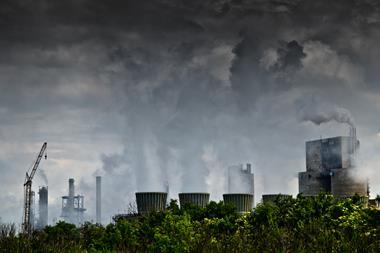Our environmental ambitions are only as good as the companies we keep
In December, leaders and representatives of nearly 200 countries gathered for the COP21 climate change summit in Paris. After two weeks of negotiation, they finally emerged, tired but smiling, having agreed to limit the global temperature rise to 2°C above preindustrial levels (and that 1.5°C would be even better).
It was a landmark moment, and the announcement received plaudits from around the world. It may have less legal bite than some would like, but simply reaching an agreement that acknowledges the concerted effort and cooperation that’s needed is worth celebrating.
Importantly, the activity in Paris wasn’t just about national governments. Early on in the proceedings, a high-profile sideshow grabbed the headlines as Bill Gates announced he and a few of his influential chums had created the billionaires’ energy concern – sorry, the breakthrough energy coalition (BEC).
The idea is that while the heads of state agree to fix the thermostat and double down on clean energy research funding, Bill’s billionaire friends of the Earth will front the cash to shepherd those new technologies along the hazardous road to market. It’s a refreshing example of responsibility and leadership from the private sector.
Of course, the environmental impact of the BEC members’ businesses arguably carries an ethical responsibility; they own airlines, fossil fuel interests and mining companies, along with energy-intensive tech giants. A cynical observer might also note that it is prudent to have some succession planning in place when the oil, coal and gas streams are priced out of profitability.
That economic imperative does at least offer the possibility that capitalism can be harnessed to protect the planet – the financial institutions that were ‘too big to fail’ are but limpets compared to the rocky sphere on which they dwell. However, sustainability in service of the bottom line only gets us so far. Unlike the elected representatives at the Paris talks, companies are not mandated to act on behalf of the public, and may well plead they are helpless to do anything but respond to consumer demand. But leaving it to legislators to put the brakes on damage caused by everything from plastic bag use to unhealthy foods and pollution is wearyingly short-sighted.
Overall, the Paris summit is very good news – not least for chemistry. Generating and storing clean energy, and reducing carbon emissions in our current energy mix, as well as producing food and fuel for billions of people are all problems that have chemistry at their heart. And seeing scientists, policymakers and industry working together to solve them is immensely satisfying. But we need everyone in the room to accept that sustainability is an essential priority, and not just a saleable buzzword. Otherwise, the space we share may soon develop an air of hostility.











No comments yet